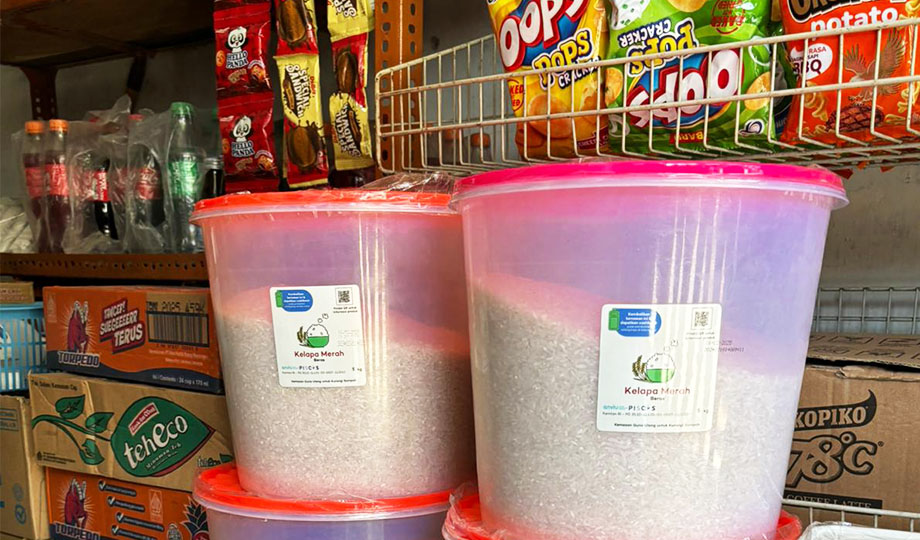Indonesia’s Coordinating Ministry for Maritime Affairs and Investment (CMMAI) is backing a scheme that sells daily basics in reusable packaging.
For the last decade, people there have bought their daily essentials such as rice, nuts, coffee, spices, soap and shampoo in single-use plastic sachets. It’s a handy way to offer people what they need when they need it and is helpful for people on low incomes.
But because these sachets can’t be recycled and are tricky to collect, waste litter has become a big pollution problem in what is largely a marine environment. This is why the Indonesian government set itself the ambitious plan to reduce marine plastic debris by 70% by 2025.
Moving towards this goal, the town of Banyuwangi, on the eastern tip of Java, has started selling everyday essentials in re-useable packaging at its roadside stalls. The trial scheme, called the ‘Pisces Relay’ action program, is led by the Partnership for Plastics in Indonesian Society (PISCES) research and recycling group.
Instead of using throw-away sachets, basics such as rice, soy sauce, cooking oil and ready-to-eat spices are packed in plastic tubs that shoppers can return and exchange with the same new products at a lower price. To start, six grocery stalls in Banyuwangi and Rogojampi are taking part, growing to ten. The pilot is backed by Enviu, a circular economy start-up running in Indonesia since 2019.
"It is hoped that this project can create a new solution to reduce single-use plastic starting from producers, retailers, communities and other stakeholders," said PISCES director Professor Sue Jobling, who also heads Brunel University London's Institute of Environment, Health and Societies.
"This collaboration involves many parties ranging from government, academics, industry, communities and society,” said Dr Eleni Iacovidou, environmental management expert at Brunel University London. "Our goal is not only to reduce plastic waste but to lay the foundations for a circular economy.”

Buyers get quality environmentally-friendly basic necessities and the chance to be part of environmental conservation efforts. By exchanging basic food packaging that has been used to buy the same product at the same shop, they contribute to maintaining environmental sustainability.
Full government support from Banyuwangi Regency Government shows a strong commitment to preserving the environment. It is hoped the trial can be an example for other regions.
"Banyuwangi is proud to be a part of this ground-breaking initiative. By piloting reuse solutions, we hope to set an example for other regions to follow in the quest for a more sustainable and eco-friendly environment," said the Regent of Banyuwangi, Ipuk Fiestiandani.